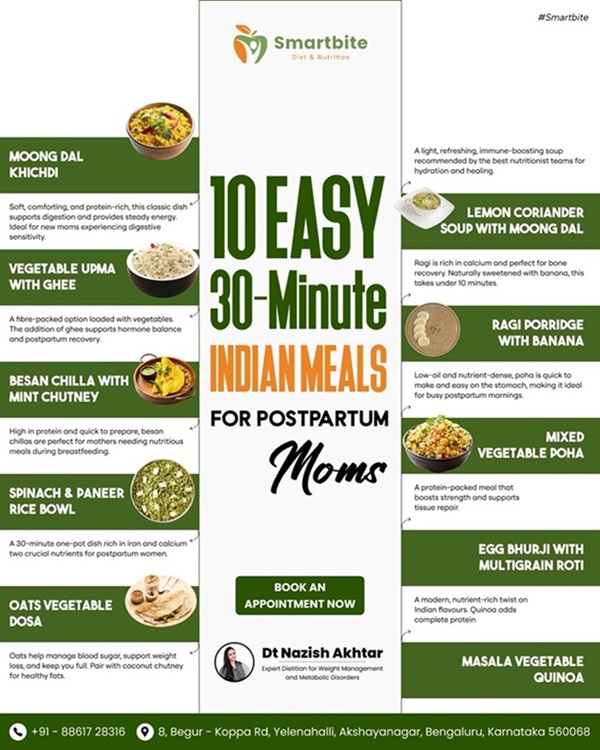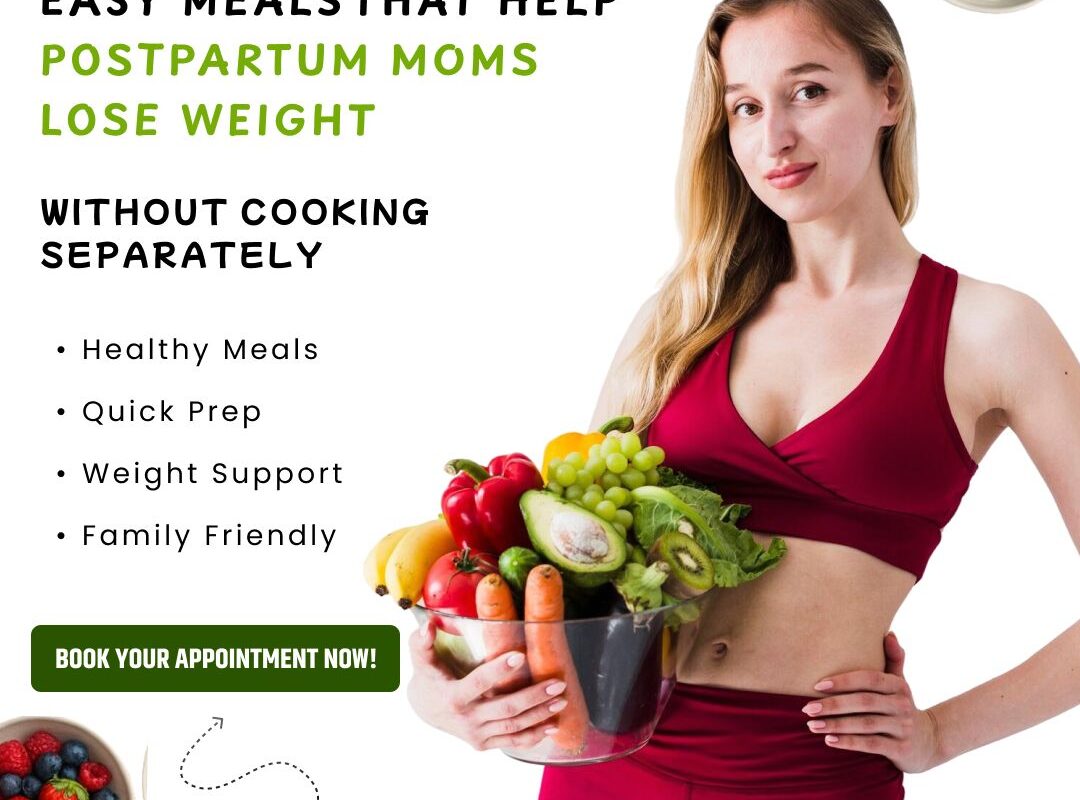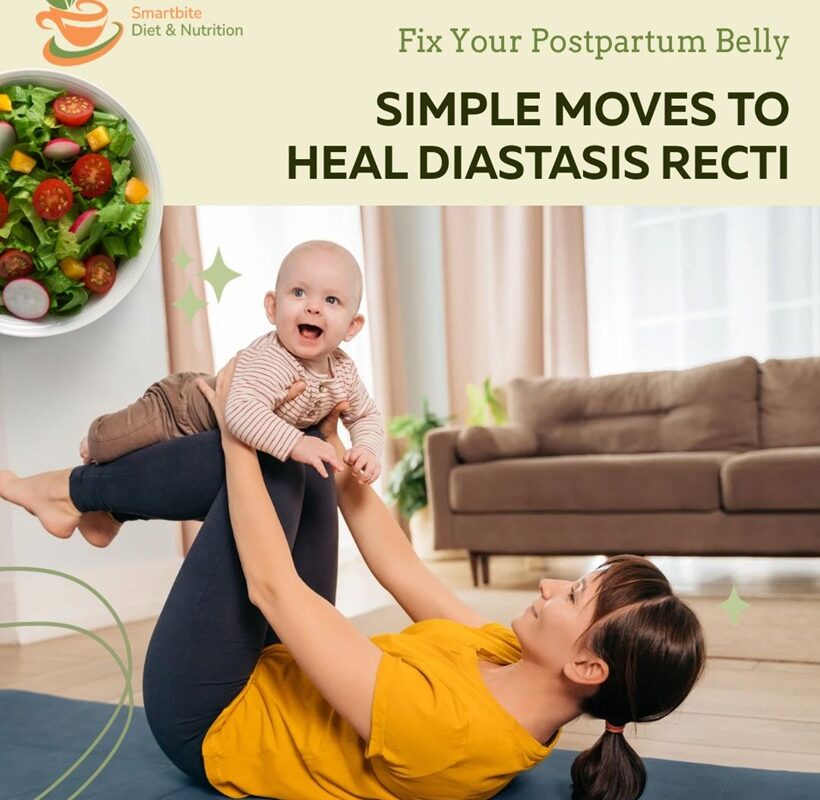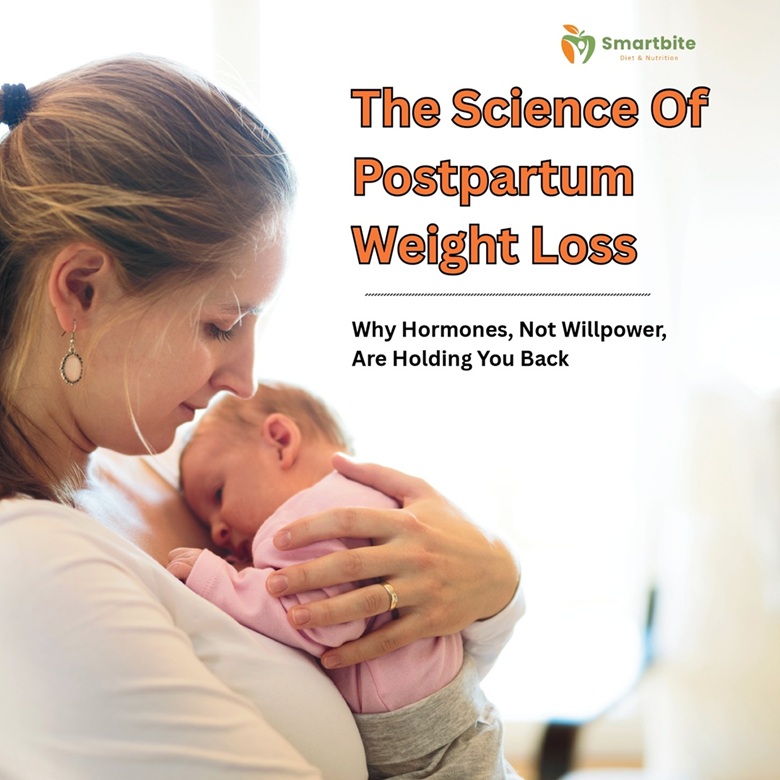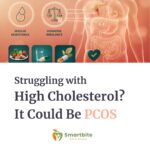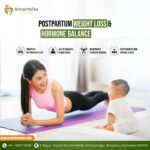Postpartum belly fat is a concern many new mothers experience due to natural hormonal fluctuations, stretched abdominal muscles, and increased fat storage during pregnancy. These changes help the body support breastfeeding and recovery, but they also make the midsection appear larger for weeks or even months after delivery. Understanding these biological factors is essential before beginning any weight loss journey.
Working with qualified experts, such as the team at SmartBite Nutrition, can make the postpartum phase healthier and more manageable. A personalised nutrition plan created by the best dietician or best nutritionist in Bangalore helps ensure new mothers receive adequate nourishment while gradually reducing belly fat. Balanced meals rich in protein, fibre, and essential micronutrients support tissue healing, metabolic balance, and hormonal recovery all crucial elements in postpartum wellness.
Guidance from specialists like Dietician Nazish Akhtar offers new mothers a structured approach to eating without compromising their baby’s nutritional needs. Her evidence-based methods focus on improving gut health, regulating appetite, and creating meal plans that fit a mother’s lifestyle. With the right nutritional strategy, postpartum weight loss becomes safe, sustainable, and stress-free.
In addition to expert-led nutrition, gentle physical activity, good sleep hygiene, and hydration play important roles in reducing postpartum belly fat. Combining these habits with professional dietary support ensures a steady and holistic transformation. With patience, consistency, and the right guidance, postpartum women can regain confidence, improve strength, and achieve long-term well-being while prioritising their recovery.
Postpartum belly fat is a natural part of recovery, and every mother’s journey is unique. With patience, compassion towards oneself, and the right professional support, it is entirely possible to restore strength, reduce belly fat, and feel confident again. Expert guidance from trusted names like SmartBite Nutrition and Dietician Nazish Akhtar empowers new mothers to prioritise health without pressure, ensuring long-term wellness for both mother and baby.




